Team
- Core
- Board of Directors
- Scientific Advisory Board
- Core
- Board of Directors
- Scientific Advisory Board
-

Jonathan Rittichier, PhD
Co-founder, CSO
Jonathan is Co-founder and CSO of EnPlusOne Bio. He performed his graduate work in organic synthesis at Indiana University in Bloomington, Indiana. During his time there, he secured a Briscoe Fellowship and worked in the laboratory of Professor Michael Vannieuwenhze. Much of this work was toward synthesizing 1) novel fluorescent probes to spy on bacteria and 2) macrocyclic natural products to kill them. He joined George Church’s Research Group at Harvard Medical School where he helped develop an enzymatic RNA synthesis platform that formed the technical basis of EnPlusOne Bio. Jonathan earned his BS in Chemistry from Indiana Wesleyan University and a PhD in Organic Chemistry from Indiana University.
CLOSE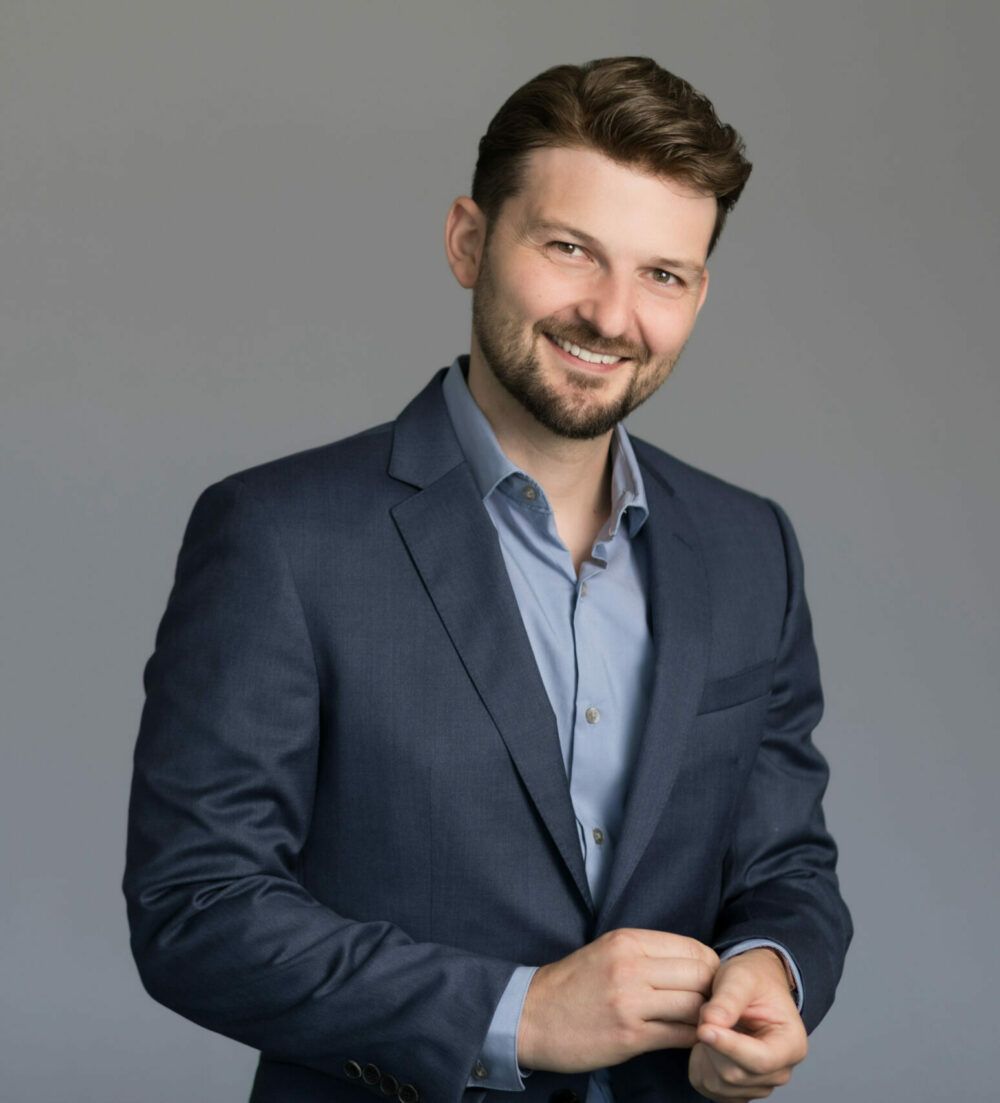
Jonathan Rittichier, PhD
Co-founder, CSOJonathan is Co-founder and CSO of EnPlusOne Bio. He performed his graduate work in organic synthesis at Indiana University in Bloomington, Indiana. During his time there, he secured a Briscoe Fellowship and worked in the laboratory of Professor Michael Vannieuwenhze. Much of this work was toward synthesizing 1) novel fluorescent probes to spy on bacteria and 2) macrocyclic natural products to kill them. He joined George Church’s Research Group at Harvard Medical School where he helped develop an enzymatic RNA synthesis platform that formed the technical basis of EnPlusOne Bio. Jonathan earned his BS in Chemistry from Indiana Wesleyan University and a PhD in Organic Chemistry from Indiana University.
Education & Affiliations


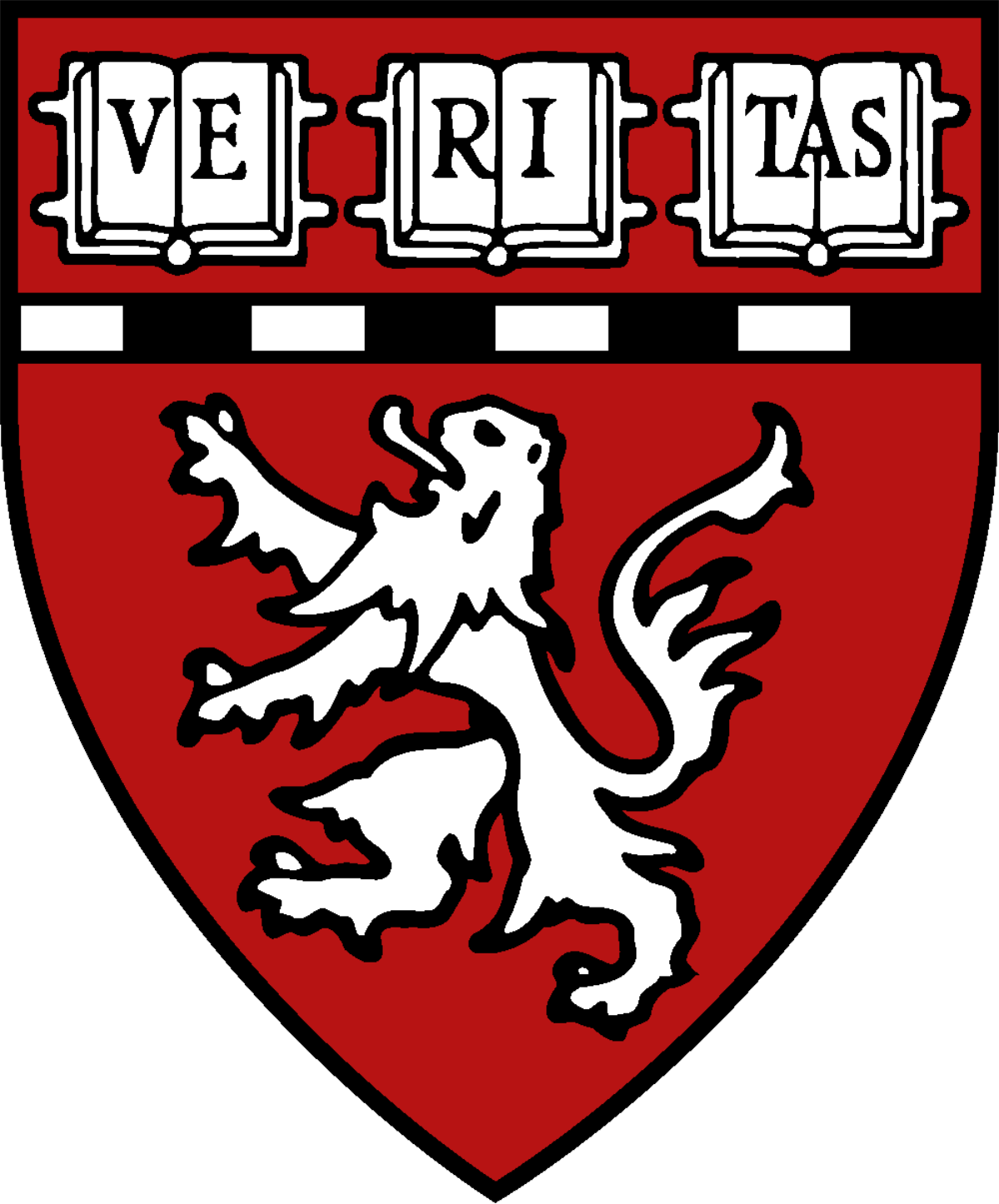

-

Dan Ahlstedt, MBA
Co-founder, COO
Dan is Co-founder, COO, and Board Director of EnPlusOne Bio. He joined the team while attending business school and was introduced to the scientific co-founders through participation in the Nucleate Program at Harvard. During this experience, Dan became convinced EnPlusOne had the technology and team to tackle the many problems facing RNA synthesis. Upon graduation, Dan was selected as a Blavatnik Fellow in Life Science Entrepreneurship which provided resources and mentorship instrumental in founding EnPlusOne. Working in the cutting-edge space of RNA is well-aligned with his passion for the biotechnology industry and rare diseases. Previously, he worked at Sanofi as a process engineer supporting large scale cGMP manufacturing of enzyme replacement therapies. Most recently, he led the design, construction, and validation of purification operations for a new continuous biomanufacturing facility, awarded the 2020 ISPE Facility of the Year. Dan earned his BS in Chemical Engineering from Northeastern University and an MBA from Harvard Business School.
CLOSE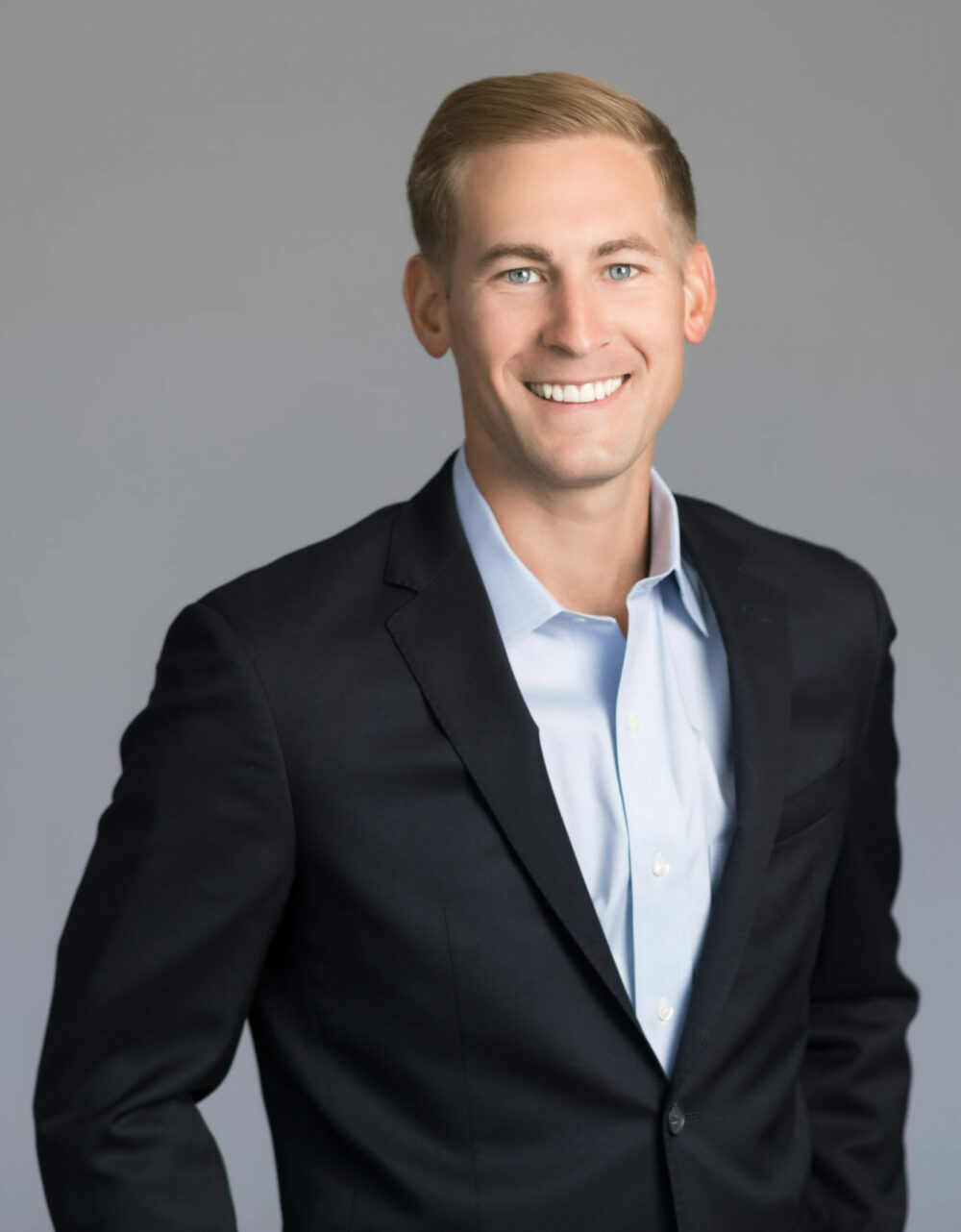
Dan Ahlstedt, MBA
Co-founder, COODan is Co-founder, COO, and Board Director of EnPlusOne Bio. He joined the team while attending business school and was introduced to the scientific co-founders through participation in the Nucleate Program at Harvard. During this experience, Dan became convinced EnPlusOne had the technology and team to tackle the many problems facing RNA synthesis. Upon graduation, Dan was selected as a Blavatnik Fellow in Life Science Entrepreneurship which provided resources and mentorship instrumental in founding EnPlusOne. Working in the cutting-edge space of RNA is well-aligned with his passion for the biotechnology industry and rare diseases. Previously, he worked at Sanofi as a process engineer supporting large scale cGMP manufacturing of enzyme replacement therapies. Most recently, he led the design, construction, and validation of purification operations for a new continuous biomanufacturing facility, awarded the 2020 ISPE Facility of the Year. Dan earned his BS in Chemical Engineering from Northeastern University and an MBA from Harvard Business School.
Education & Affiliations

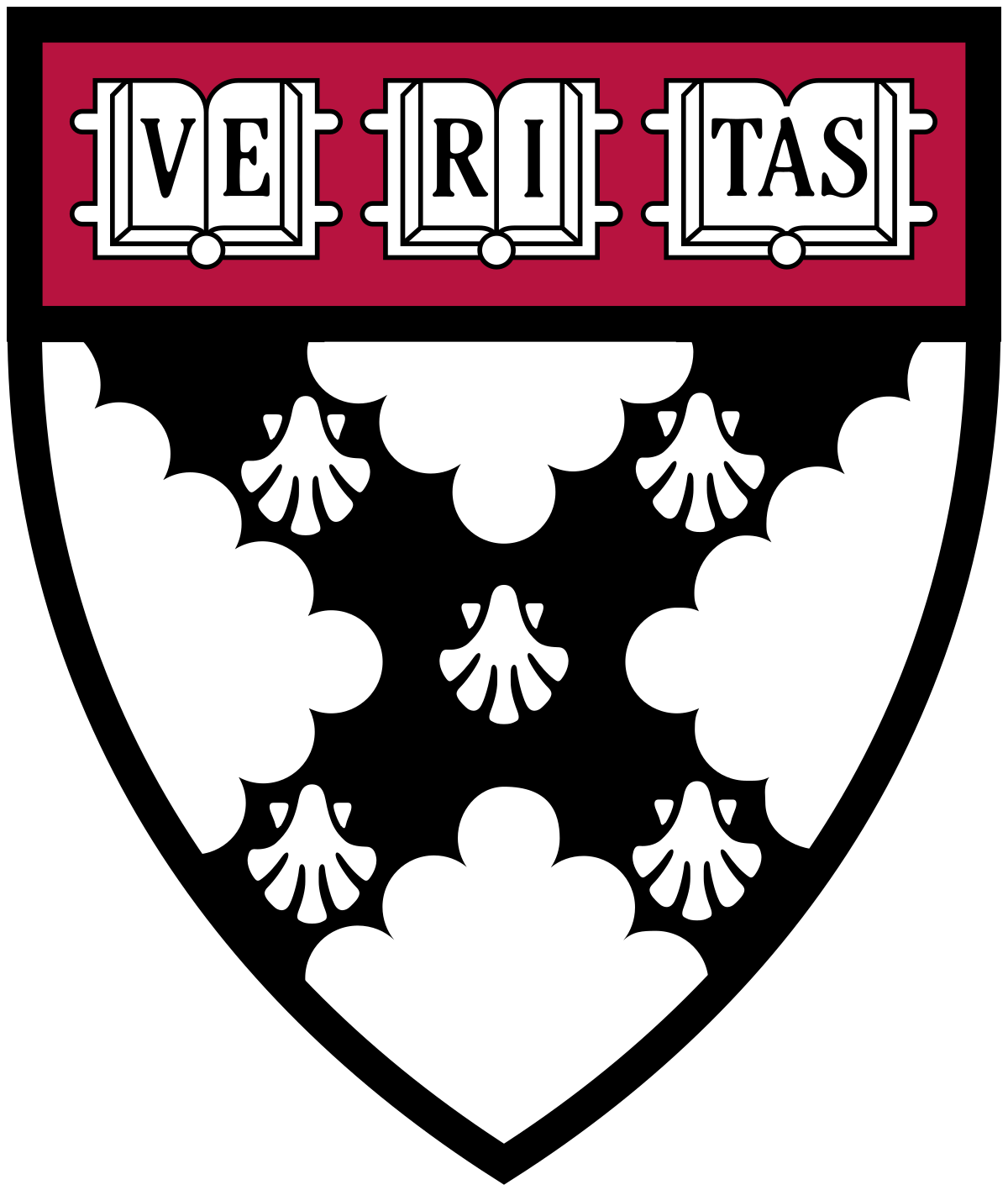
-

George Church, PhD
Co-founder, Advisor
George is Co-founder and Scientific Advisor of EnPlusOne Bio. He leads Synthetic Biology at the Wyss Institute, where he oversees the directed evolution of molecules, polymers and whole genomes to create new tools with applications in regenerative medicine and bioproduction of chemicals. Among his recent work at the Wyss, is development of a technology for synthesizing whole genes and engineering whole genomes, far faster, more accurate, and less costly than current methods. George is widely recognized for his innovative contributions to genomic science and his many pioneering contributions to chemistry and biomedicine. In 1984, he developed the first direct genomic sequencing method, which resulted in the first genome sequence (the human pathogen, H. pylori). He helped initiate the Human Genome Project in 1984 and the Personal Genome Project in 2005. George invented the broadly applied concepts of molecular multiplexing and tags, homologous recombination methods, and array DNA synthesizers.
His many innovations have been the basis for a number of companies including Editas (Gene therapy), Gen9bio (Synthetic DNA), Veritas & Nebula (full human genome). George is Professor of Genetics at Harvard Medical School and Professor of Health Sciences and Technology at Harvard and the Massachusetts Institute of Technology (MIT). He has been Director of the U.S. Department of Energy Technology Center and Director of the National Institutes of Health Center of Excellence in Genomic Science. He has received numerous awards including the 2011 Bower Award and Prize for Achievement in Science from the Franklin Institute and election to the National Academy of Sciences and Engineering.
CLOSE
George Church, PhD
Co-founder, AdvisorGeorge is Co-founder and Scientific Advisor of EnPlusOne Bio. He leads Synthetic Biology at the Wyss Institute, where he oversees the directed evolution of molecules, polymers and whole genomes to create new tools with applications in regenerative medicine and bioproduction of chemicals. Among his recent work at the Wyss, is development of a technology for synthesizing whole genes and engineering whole genomes, far faster, more accurate, and less costly than current methods. George is widely recognized for his innovative contributions to genomic science and his many pioneering contributions to chemistry and biomedicine. In 1984, he developed the first direct genomic sequencing method, which resulted in the first genome sequence (the human pathogen, H. pylori). He helped initiate the Human Genome Project in 1984 and the Personal Genome Project in 2005. George invented the broadly applied concepts of molecular multiplexing and tags, homologous recombination methods, and array DNA synthesizers.
His many innovations have been the basis for a number of companies including Editas (Gene therapy), Gen9bio (Synthetic DNA), Veritas & Nebula (full human genome). George is Professor of Genetics at Harvard Medical School and Professor of Health Sciences and Technology at Harvard and the Massachusetts Institute of Technology (MIT). He has been Director of the U.S. Department of Energy Technology Center and Director of the National Institutes of Health Center of Excellence in Genomic Science. He has received numerous awards including the 2011 Bower Award and Prize for Achievement in Science from the Franklin Institute and election to the National Academy of Sciences and Engineering.
Education & Affiliations
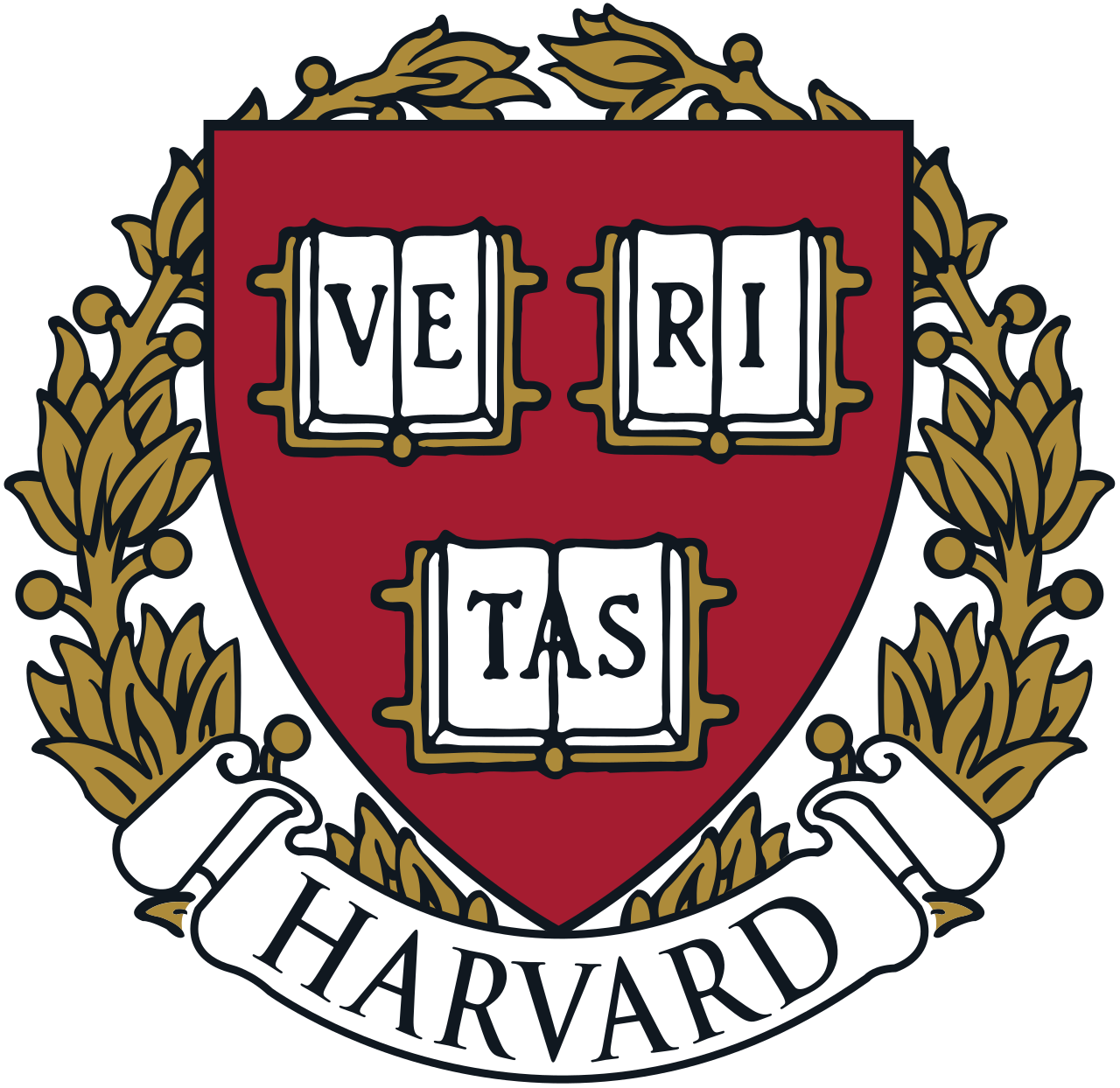



-

Bob Flynn
Director of Engineering
Bob is the Director of Engineering at EnPlusOne Bio. He has over 25 years of experience in the Biotechnology industry with process equipment and system design. Prior to joining EnPlusOne, he was the Process Design Lead at Sanofi for their multi-product cGMP manufacturing facility (2020 ISPE Facility of the Year). Over a four-year period, he led a group of engineers who were responsible for the design, fabrication oversight, start-up and commissioning of the process unit operations for two full-scale manufacturing suites. Bob’s thorough understanding of bioprocess unit operations and the design requirements necessary to support compliant GMP operation will be valuable as EPO scales the process. Bob earned his BS in Mechanical Engineering from the University of Massachusetts.
CLOSE
Bob Flynn
Director of EngineeringBob is the Director of Engineering at EnPlusOne Bio. He has over 25 years of experience in the Biotechnology industry with process equipment and system design. Prior to joining EnPlusOne, he was the Process Design Lead at Sanofi for their multi-product cGMP manufacturing facility (2020 ISPE Facility of the Year). Over a four-year period, he led a group of engineers who were responsible for the design, fabrication oversight, start-up and commissioning of the process unit operations for two full-scale manufacturing suites. Bob’s thorough understanding of bioprocess unit operations and the design requirements necessary to support compliant GMP operation will be valuable as EPO scales the process. Bob earned his BS in Mechanical Engineering from the University of Massachusetts.
Education & Affiliations

-

Dominic Rainone, MS
Associate Scientist II – Chemistry
Dominic is an Associate Scientist at EnPlusOne Bio., specializing in organic synthesis. He is a recent graduate from Massachusetts College of Pharmacy and Health Sciences, where he received a Bachelor of Science in Chemistry and a Master of Science in Pharmaceutical Chemistry. While attending university, Dominic worked as a Research Intern for the Lencer and Loddenkemper laboratories at Harvard Medical School and Boston Children’s Hospital. His undergraduate research was focused on the synthesis of ultra-pure fluorescent probes for inclusion in plastic scintillators. His Master’s Thesis concerned the synthesis of a dopamine agonist as a drug target for cocaine abuse disorder.
CLOSE
Dominic Rainone, MS
Associate Scientist II – ChemistryDominic is an Associate Scientist at EnPlusOne Bio., specializing in organic synthesis. He is a recent graduate from Massachusetts College of Pharmacy and Health Sciences, where he received a Bachelor of Science in Chemistry and a Master of Science in Pharmaceutical Chemistry. While attending university, Dominic worked as a Research Intern for the Lencer and Loddenkemper laboratories at Harvard Medical School and Boston Children’s Hospital. His undergraduate research was focused on the synthesis of ultra-pure fluorescent probes for inclusion in plastic scintillators. His Master’s Thesis concerned the synthesis of a dopamine agonist as a drug target for cocaine abuse disorder.
Education & Affiliations

-

Brett Ford
Associate Scientist I – Chemistry
Brett is an Associate Scientist at EnPlusOne Bio specializing in organic synthesis. He recently graduated from Colby College where he received a Bachelor of Arts in Chemistry and Computer Science. He preformed undergraduate research in the Thamattoor laboratory, focusing on the generation of novel carbenes. This work culminated in an honors thesis on the generation of oxiranylidene and cyclopropyl SN2 attacks. After graduating he joined the Laboratory for Drug Discovery in Neurodegeneration, where he worked on projects developing novel small molecule drugs as treatments for central nervous system disorders including Alzheimer’s and Multiple Sclerosis.
CLOSE
Brett Ford
Associate Scientist I – ChemistryBrett is an Associate Scientist at EnPlusOne Bio specializing in organic synthesis. He recently graduated from Colby College where he received a Bachelor of Arts in Chemistry and Computer Science. He preformed undergraduate research in the Thamattoor laboratory, focusing on the generation of novel carbenes. This work culminated in an honors thesis on the generation of oxiranylidene and cyclopropyl SN2 attacks. After graduating he joined the Laboratory for Drug Discovery in Neurodegeneration, where he worked on projects developing novel small molecule drugs as treatments for central nervous system disorders including Alzheimer’s and Multiple Sclerosis.
Education & Affiliations

-

Lucas Govert
Associate Scientist II – Bioprocessing
Lucas Govert is an Associate Scientist at EnPlusOne, focusing on enzyme production and scale up. After graduating from the University of Maine, Lucas transitioned into the biopharmaceutical world working on manufacturing and scale up of the covid mRNA vaccine. After working in pilot and process development roles for AAV based gene therapy, he joined the team to assist with the scale up of enzyme production.
CLOSE
Lucas Govert
Associate Scientist II – BioprocessingLucas Govert is an Associate Scientist at EnPlusOne, focusing on enzyme production and scale up. After graduating from the University of Maine, Lucas transitioned into the biopharmaceutical world working on manufacturing and scale up of the covid mRNA vaccine. After working in pilot and process development roles for AAV based gene therapy, he joined the team to assist with the scale up of enzyme production.
Education & Affiliations

-

Mary Bonanno
Research Assistant – Chemistry
Mary is a Research Associate for the Chemistry team, focusing on enzymatic RNA synthesis. She recently graduated from Indiana Wesleyan University with a B.S. in Biochemistry. She performed undergraduate research in the Linger laboratory for two years focusing on the stability of metabolic enzymes in thermophilic bacterium. Additionally, she completed the SURP program at Albert Einstein College of Medicine where she developed an assay for the activation of macrophages in vitro
CLOSE
Mary Bonanno
Research Assistant – ChemistryMary is a Research Associate for the Chemistry team, focusing on enzymatic RNA synthesis. She recently graduated from Indiana Wesleyan University with a B.S. in Biochemistry. She performed undergraduate research in the Linger laboratory for two years focusing on the stability of metabolic enzymes in thermophilic bacterium. Additionally, she completed the SURP program at Albert Einstein College of Medicine where she developed an assay for the activation of macrophages in vitro
Education & Affiliations

-

Daniel Wiegand
Co-founder
Daniel is Co-founder of EnPlusOne Bio. Previously, Daniel was an Advanced Technology Team staff member at the Wyss Institute for Biologically Inspired Engineering and Dr. George Church’s lab at Harvard Medical School. At the Wyss, Daniel was extensively involved in developing translational technology revolving around microarray based high throughput DNA/RNA oligonucleotide library synthesis, large scale gene assembly and fluorescence in situ gene sequencing (FISSEQ). During his tenure at the Wyss Institute, Daniel lead the development of several cell free protein expression systems from non-standard bacteria such as Vibrio natriegens, Streptomyces coelicolor and Pseudomonas aeruginosa. His passion for protein engineering, mutagenesis and high-throughput expression techniques led to the development of novel enzymes that are currently being used to build a next-generation RNA oligonucleotide synthesis & manufacturing platform at EnPlusOne Bio. Daniel received his Bachelor of Science in Biochemistry and Master of Science in Chemical Engineering from Northeastern University.
CLOSE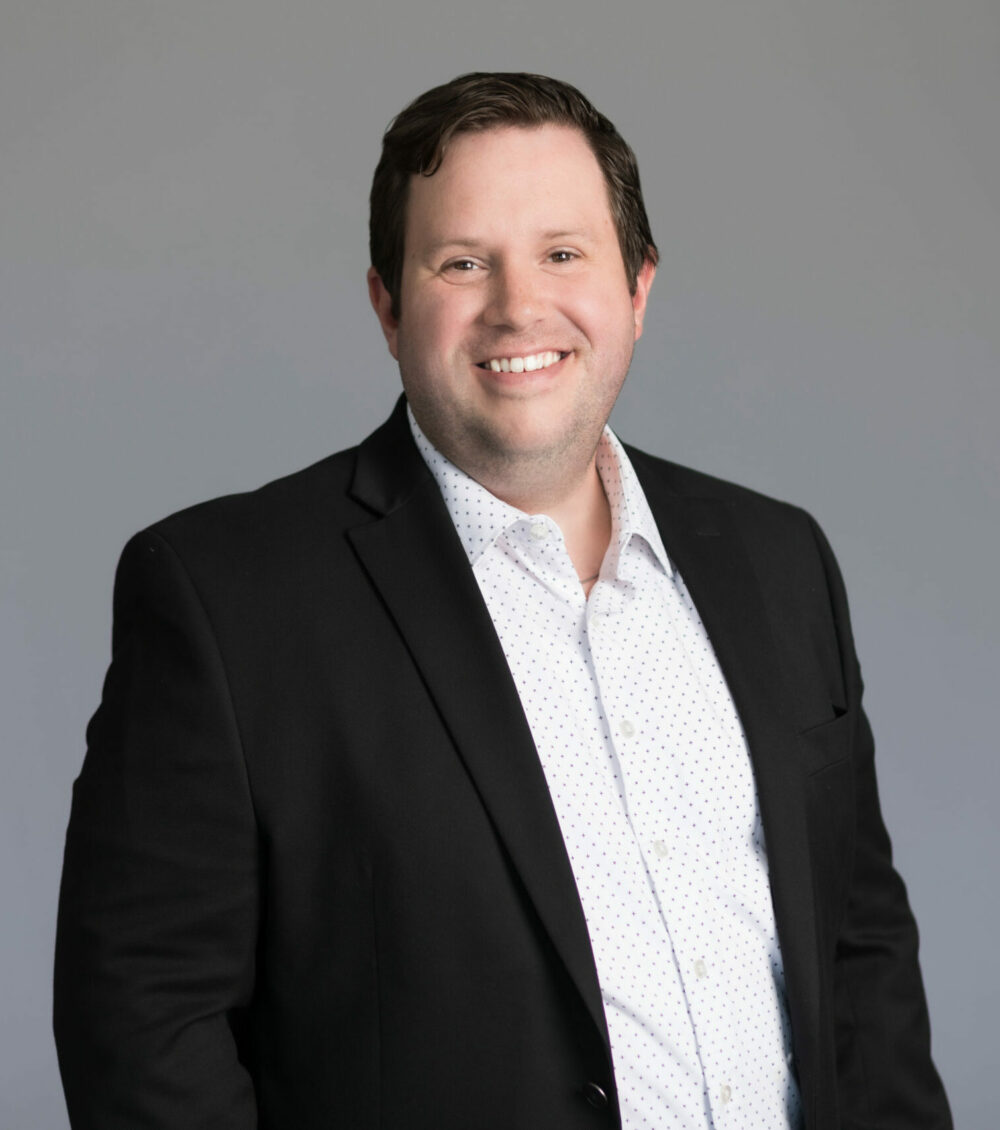
Daniel Wiegand
Co-founderDaniel is Co-founder of EnPlusOne Bio. Previously, Daniel was an Advanced Technology Team staff member at the Wyss Institute for Biologically Inspired Engineering and Dr. George Church’s lab at Harvard Medical School. At the Wyss, Daniel was extensively involved in developing translational technology revolving around microarray based high throughput DNA/RNA oligonucleotide library synthesis, large scale gene assembly and fluorescence in situ gene sequencing (FISSEQ). During his tenure at the Wyss Institute, Daniel lead the development of several cell free protein expression systems from non-standard bacteria such as Vibrio natriegens, Streptomyces coelicolor and Pseudomonas aeruginosa. His passion for protein engineering, mutagenesis and high-throughput expression techniques led to the development of novel enzymes that are currently being used to build a next-generation RNA oligonucleotide synthesis & manufacturing platform at EnPlusOne Bio. Daniel received his Bachelor of Science in Biochemistry and Master of Science in Chemical Engineering from Northeastern University.
Education & Affiliations



-

Steven Kasok
Board Chair
Steve Kasok is an operationally oriented financial executive with broad life science expertise. He co-founded and served as CFO of Brammer Bio and Gallus Biopharmaceuticals which are both now part of Thermo Fisher Scientific. He previously served on the Boards of Cognate Bioservices and Brammer Bio. His operational responsibilities have included Finance, Business Development, Human Resources, Information Technology and the Legal functions. Kasok’s broader industry experiences included roles as Vice President and Treasurer of Millipore Corporation, CFO of Cabot Supermetals, and Treasurer and Business Development Officer at Haemonetics Corp, and a variety of roles in GE. He earned a BS in Finance from Clarkson University and an MBA from Harvard Business School.
CLOSE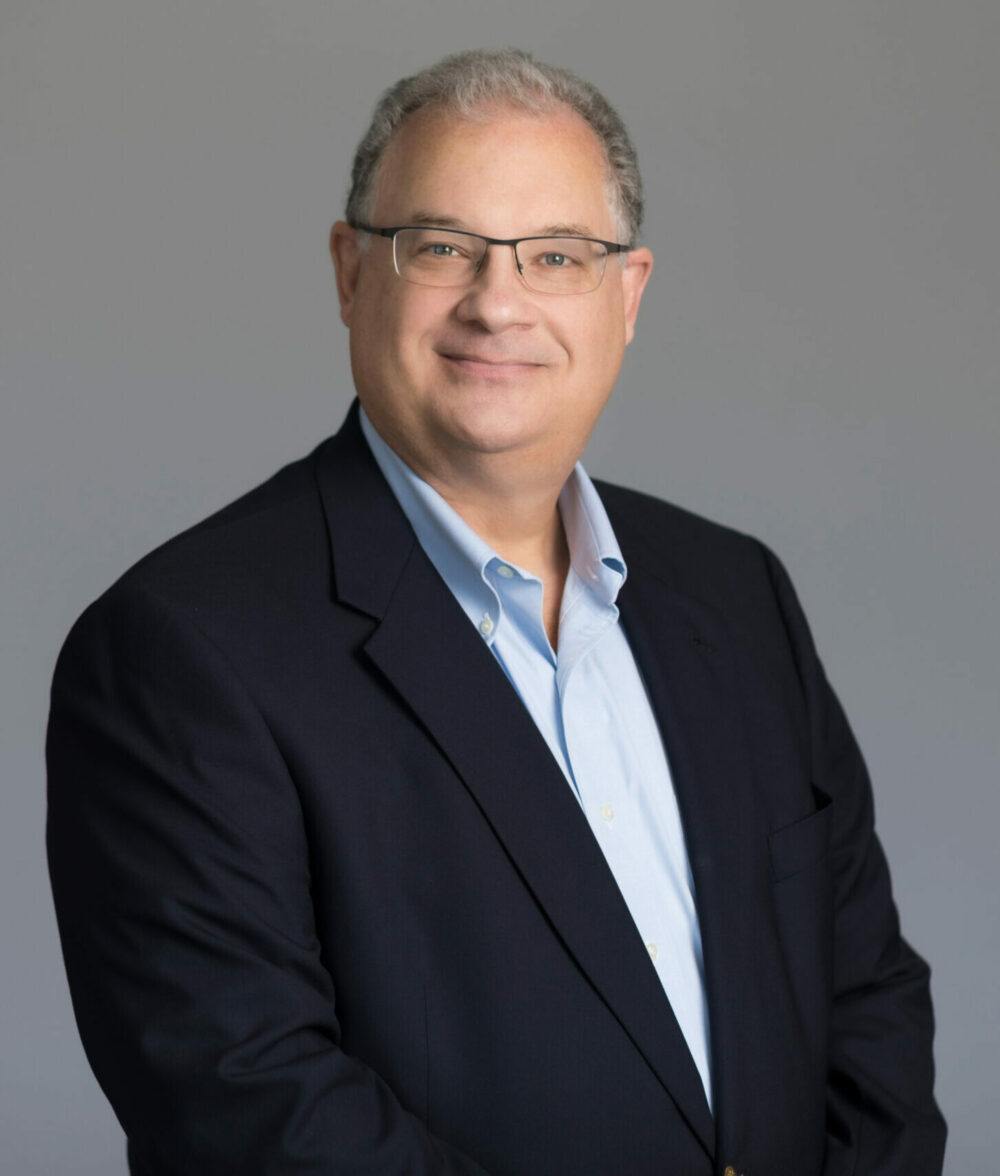
Steven Kasok
Board ChairSteve Kasok is an operationally oriented financial executive with broad life science expertise. He co-founded and served as CFO of Brammer Bio and Gallus Biopharmaceuticals which are both now part of Thermo Fisher Scientific. He previously served on the Boards of Cognate Bioservices and Brammer Bio. His operational responsibilities have included Finance, Business Development, Human Resources, Information Technology and the Legal functions. Kasok’s broader industry experiences included roles as Vice President and Treasurer of Millipore Corporation, CFO of Cabot Supermetals, and Treasurer and Business Development Officer at Haemonetics Corp, and a variety of roles in GE. He earned a BS in Finance from Clarkson University and an MBA from Harvard Business School.
Education & Affiliations
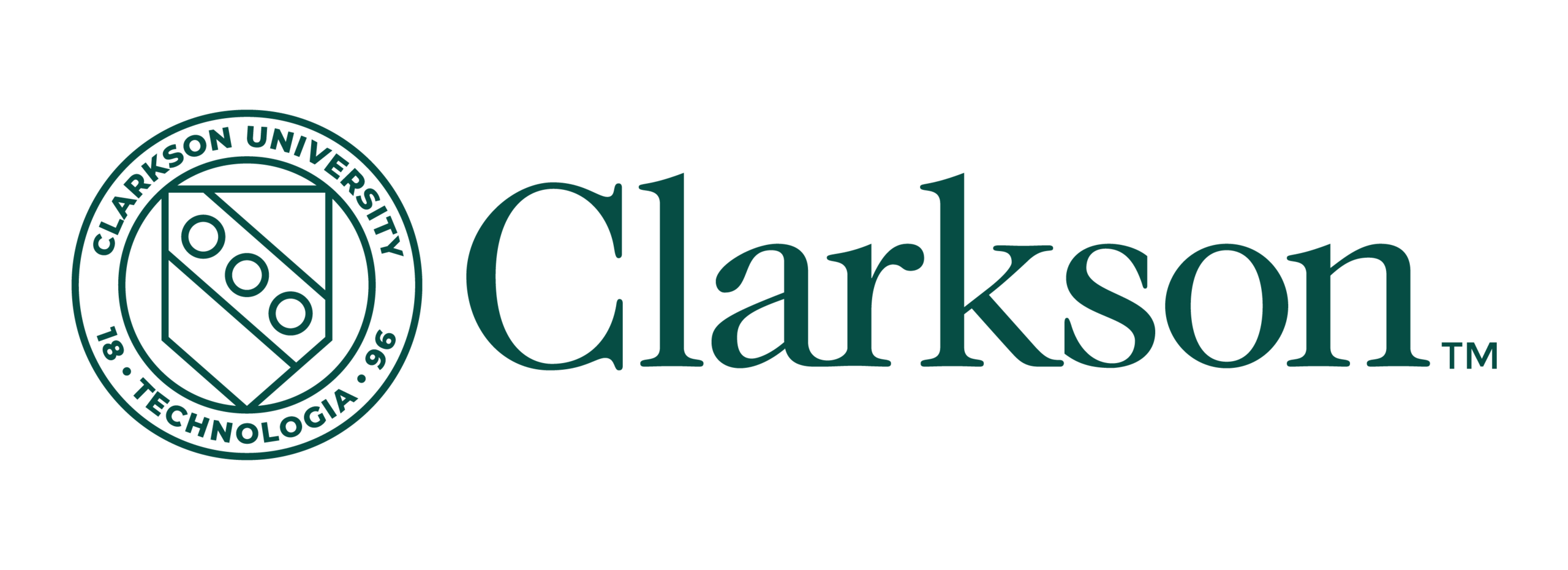

-

Dan Ahlstedt, MBA
Co-founder, COO
Dan is Co-founder, COO, and Board Director of EnPlusOne Bio. He joined the team while attending business school and was introduced to the scientific co-founders through participation in the Nucleate Program at Harvard. During this experience, Dan became convinced EnPlusOne had the technology and team to tackle the many problems facing RNA synthesis. Upon graduation, Dan was selected as a Blavatnik Fellow in Life Science Entrepreneurship which provided resources and mentorship instrumental in founding EnPlusOne. Working in the cutting-edge space of RNA is well-aligned with his passion for the biotechnology industry and rare diseases. Previously, he worked at Sanofi as a process engineer supporting large scale cGMP manufacturing of enzyme replacement therapies. Most recently, he led the design, construction, and validation of purification operations for a new continuous biomanufacturing facility, awarded the 2020 ISPE Facility of the Year. Dan earned his BS in Chemical Engineering from Northeastern University and an MBA from Harvard Business School.
CLOSE
Dan Ahlstedt, MBA
Co-founder, COODan is Co-founder, COO, and Board Director of EnPlusOne Bio. He joined the team while attending business school and was introduced to the scientific co-founders through participation in the Nucleate Program at Harvard. During this experience, Dan became convinced EnPlusOne had the technology and team to tackle the many problems facing RNA synthesis. Upon graduation, Dan was selected as a Blavatnik Fellow in Life Science Entrepreneurship which provided resources and mentorship instrumental in founding EnPlusOne. Working in the cutting-edge space of RNA is well-aligned with his passion for the biotechnology industry and rare diseases. Previously, he worked at Sanofi as a process engineer supporting large scale cGMP manufacturing of enzyme replacement therapies. Most recently, he led the design, construction, and validation of purification operations for a new continuous biomanufacturing facility, awarded the 2020 ISPE Facility of the Year. Dan earned his BS in Chemical Engineering from Northeastern University and an MBA from Harvard Business School.
Education & Affiliations


-

Paxton Major
Board Director
Paxton Major is a Director at Northpond Ventures. He joined Northpond in August 2018 as a member of the investment team, helping lead investments in biopharma R&D tools, precision medicine, and digital health. Paxton is a board director at EnPlusOne, Kytopen, Molecule, QbD Vision, and Teckro. Some of his active and past board observer roles include Elephas, Scitara, Selux Diagnostics, SimBioSys, Syapse, VieCure, Current Health (acquired by BBY), and NanoView (acquired by Unchained Labs). Previously, Paxton was a consultant at Trinity Partners, a life science-focused strategy and management consultancy that advises clients by providing in-depth market, competitor, customer, and financial insights. Paxton earned a B.S. with honors in neurobiology from Brown University.
CLOSE
Paxton Major
Board DirectorPaxton Major is a Director at Northpond Ventures. He joined Northpond in August 2018 as a member of the investment team, helping lead investments in biopharma R&D tools, precision medicine, and digital health. Paxton is a board director at EnPlusOne, Kytopen, Molecule, QbD Vision, and Teckro. Some of his active and past board observer roles include Elephas, Scitara, Selux Diagnostics, SimBioSys, Syapse, VieCure, Current Health (acquired by BBY), and NanoView (acquired by Unchained Labs). Previously, Paxton was a consultant at Trinity Partners, a life science-focused strategy and management consultancy that advises clients by providing in-depth market, competitor, customer, and financial insights. Paxton earned a B.S. with honors in neurobiology from Brown University.
Education & Affiliations

-

Andrew Lee, PhD
Board Director
Andrew Lee is a Vice President at Northpond Ventures on the firm’s life science R&D solutions, molecular diagnostics, and environmental sciences teams. Andrew is a Board Director at Culture Biosciences. Previously, he was an Associate at Booz Allen Hamilton working in the Biological Technologies Office at the Defense Advanced Research Projects Agency (DARPA), where he supported the development and management of a high-risk, high-reward research funding portfolio in Gene Editing and Synthetic Biology. Earlier, Andrew worked at Sangamo Biosciences (now Sangamo Therapeutics). Andrew earned a Ph.D. in Microbiology and Immunology from Columbia University. He received a B.A. with honors in Molecular and Cell Biology, with an emphasis in Biochemistry and Molecular Biology, at University of California, Berkeley.
CLOSE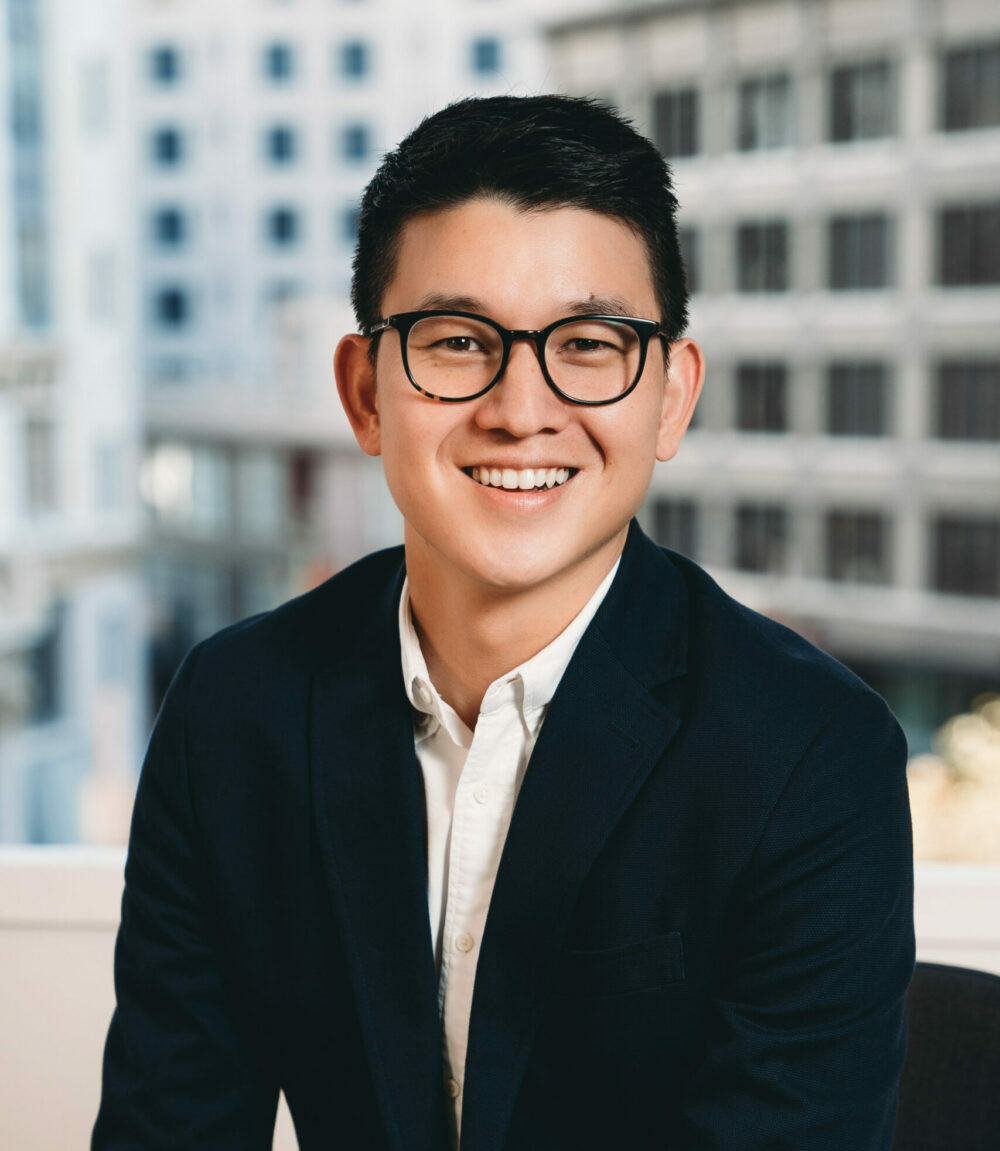
Andrew Lee, PhD
Board DirectorAndrew Lee is a Vice President at Northpond Ventures on the firm’s life science R&D solutions, molecular diagnostics, and environmental sciences teams. Andrew is a Board Director at Culture Biosciences. Previously, he was an Associate at Booz Allen Hamilton working in the Biological Technologies Office at the Defense Advanced Research Projects Agency (DARPA), where he supported the development and management of a high-risk, high-reward research funding portfolio in Gene Editing and Synthetic Biology. Earlier, Andrew worked at Sangamo Biosciences (now Sangamo Therapeutics). Andrew earned a Ph.D. in Microbiology and Immunology from Columbia University. He received a B.A. with honors in Molecular and Cell Biology, with an emphasis in Biochemistry and Molecular Biology, at University of California, Berkeley.
Education & Affiliations
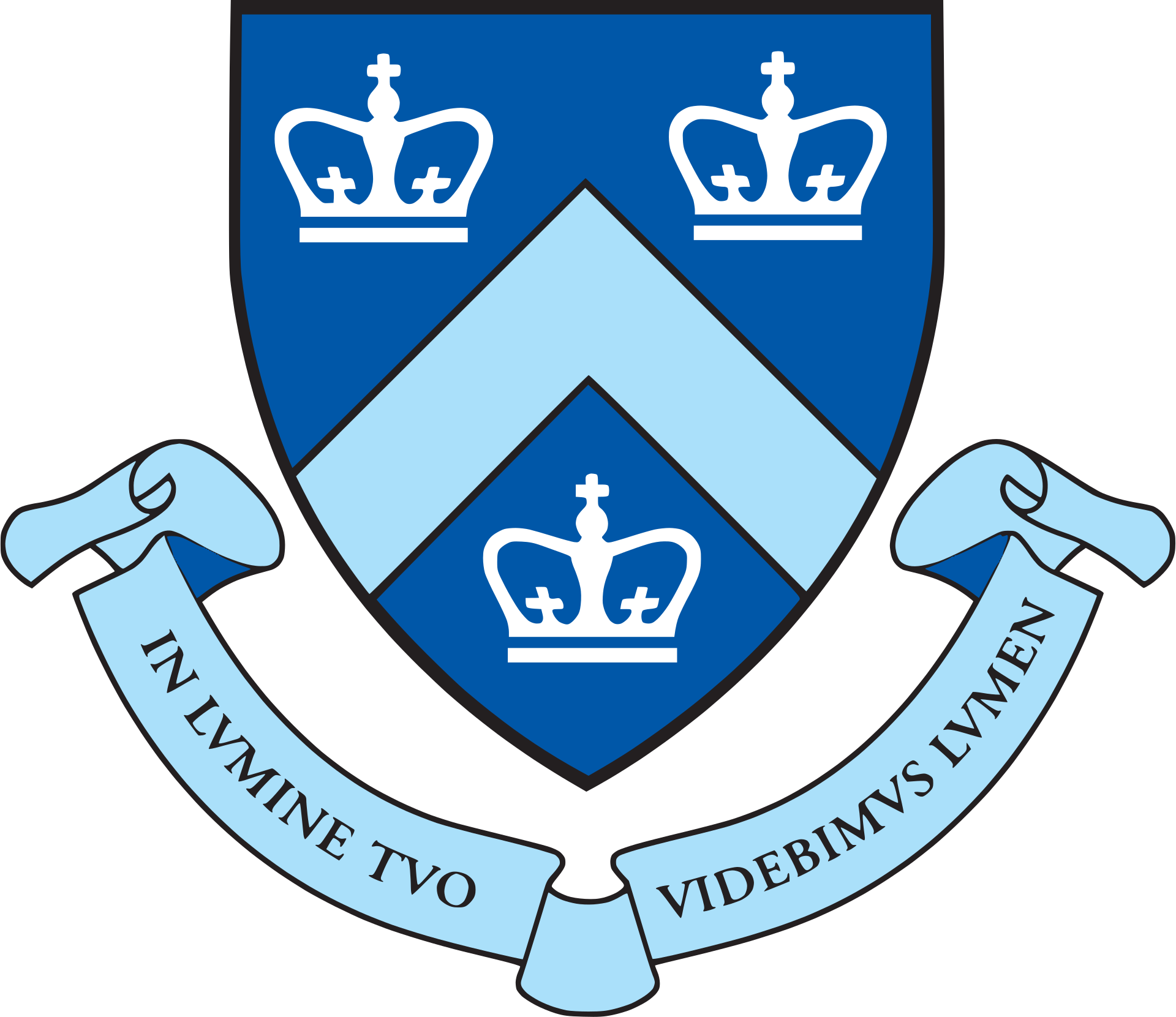
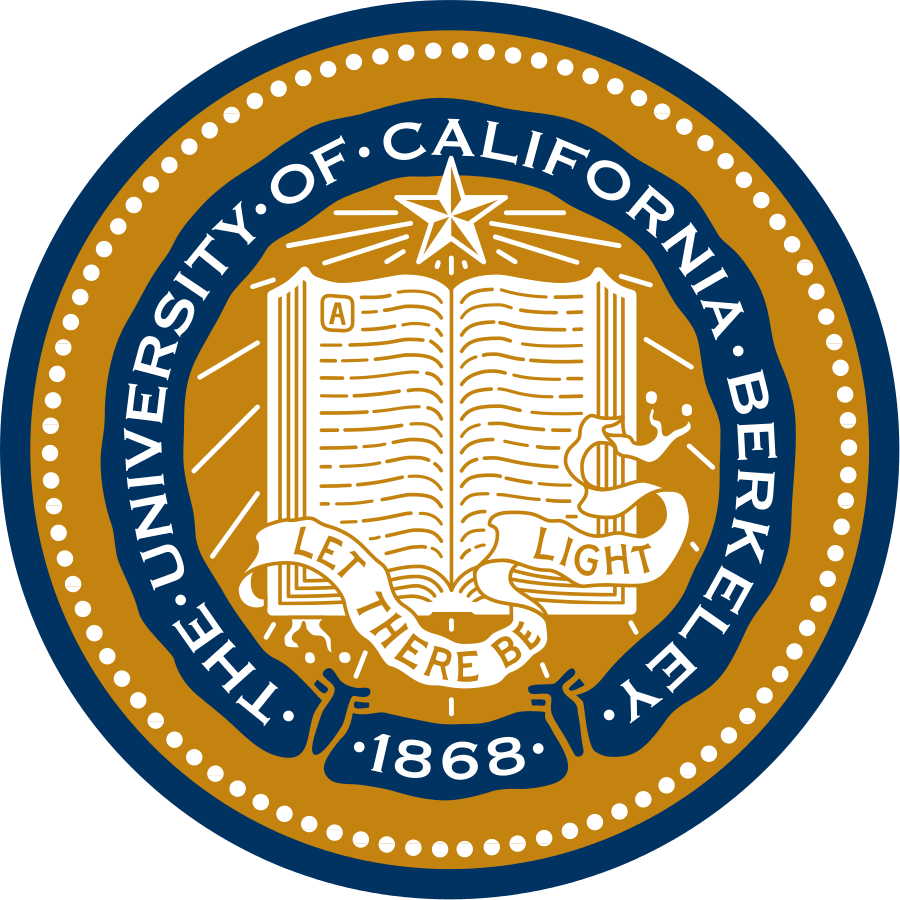
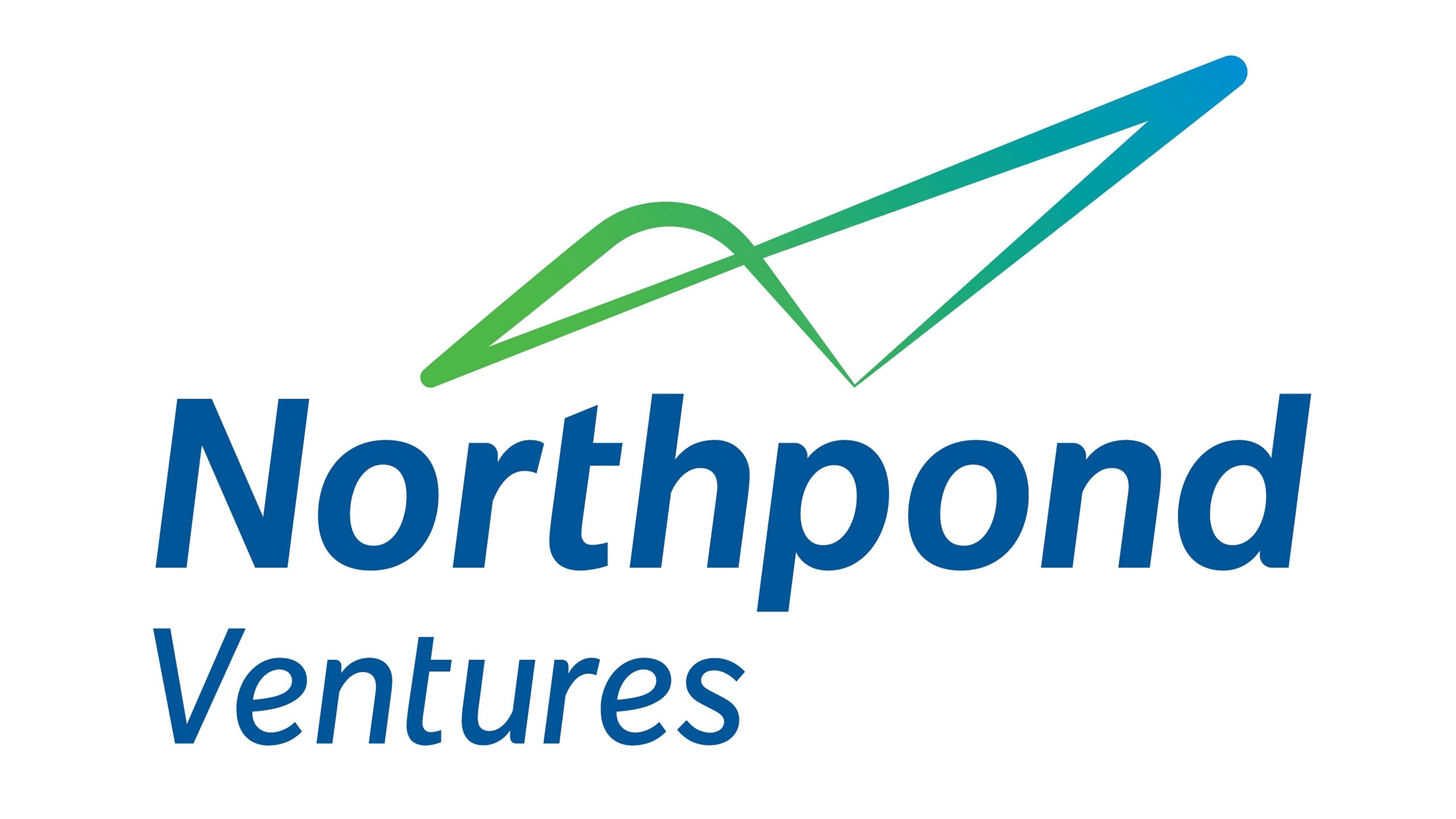
-

Julia Moore
Board Observer
Julia partners with bold entrepreneurs building the bio-based future. She is a Managing Partner at Breakout Ventures, investing in early stage companies harnessing the power of cells to build solutions in human health and sustainability.
Julia has spent her career as an investor and operator, navigating the translation of new technologies in life sciences to customer adoption and scale. She has been investing in and building venture-backed, science-driven companies for the last 15 years and has worked with multiple companies from founding through IPO or M&A. Julia began her career as a public investor and research analyst on Wall Street. She is also a Kaufman Fellow. She is a graduate of the University of Virginia, where she studied Finance and Bioethics.
CLOSE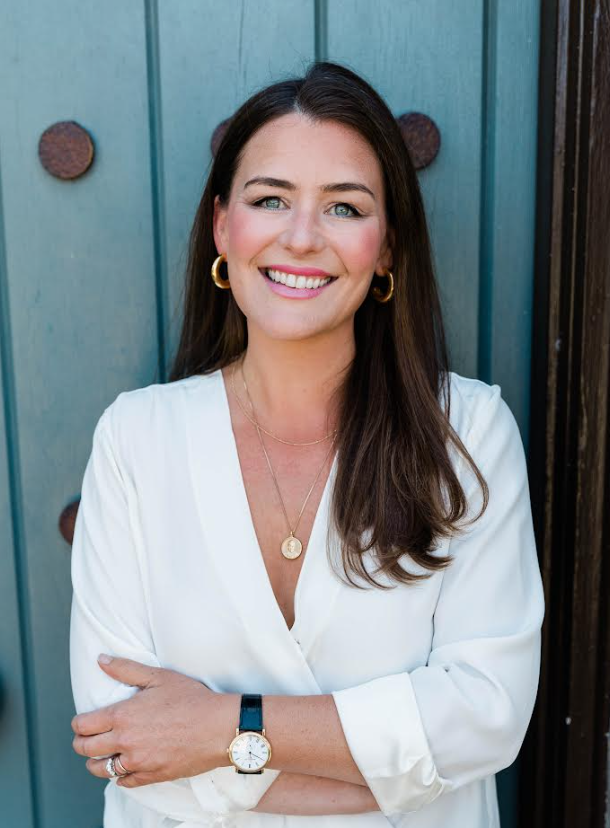
Julia Moore
Board ObserverJulia partners with bold entrepreneurs building the bio-based future. She is a Managing Partner at Breakout Ventures, investing in early stage companies harnessing the power of cells to build solutions in human health and sustainability.
Julia has spent her career as an investor and operator, navigating the translation of new technologies in life sciences to customer adoption and scale. She has been investing in and building venture-backed, science-driven companies for the last 15 years and has worked with multiple companies from founding through IPO or M&A. Julia began her career as a public investor and research analyst on Wall Street. She is also a Kaufman Fellow. She is a graduate of the University of Virginia, where she studied Finance and Bioethics.
Education & Affiliations
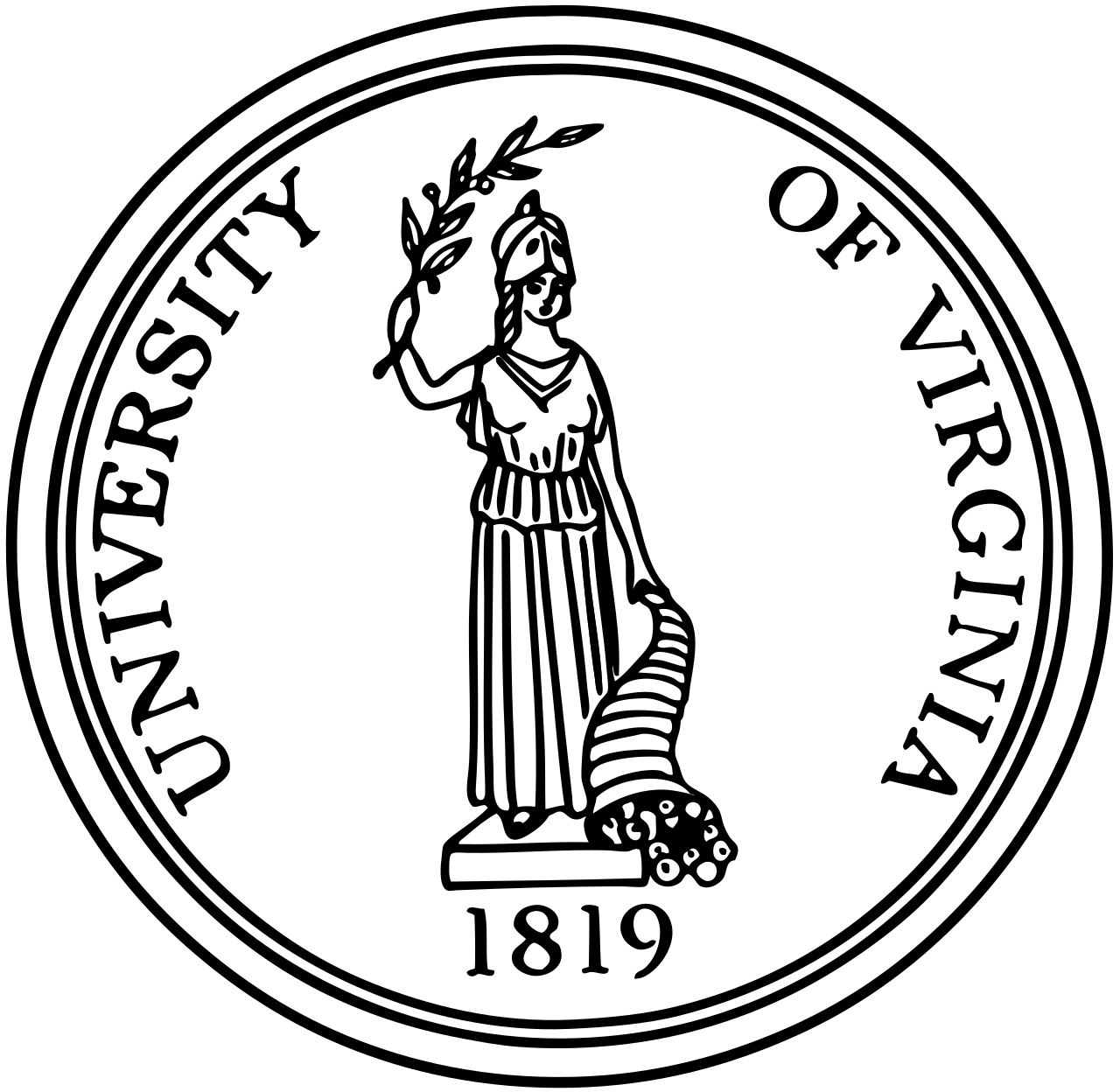
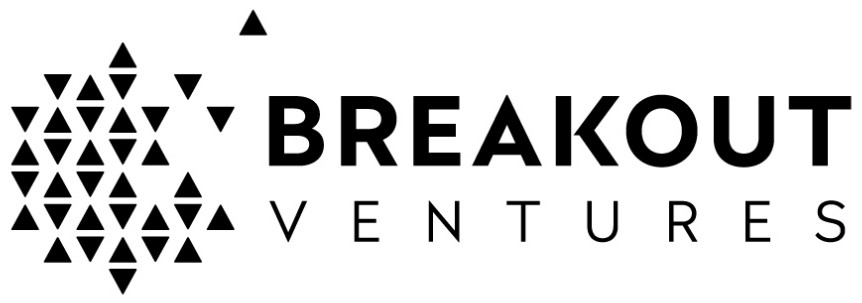
-

Jonathan Rittichier, PhD
Co-founder, CSO
Jonathan is Co-founder and CSO of EnPlusOne Bio. He performed his graduate work in organic synthesis at Indiana University in Bloomington, Indiana. During his time there, he secured a Briscoe Fellowship and worked in the laboratory of Professor Michael Vannieuwenhze. Much of this work was toward synthesizing 1) novel fluorescent probes to spy on bacteria and 2) macrocyclic natural products to kill them. He joined George Church’s Research Group at Harvard Medical School where he helped develop an enzymatic RNA synthesis platform that formed the technical basis of EnPlusOne Bio. Jonathan earned his BS in Chemistry from Indiana Wesleyan University and a PhD in Organic Chemistry from Indiana University.
CLOSE
Jonathan Rittichier, PhD
Co-founder, CSOJonathan is Co-founder and CSO of EnPlusOne Bio. He performed his graduate work in organic synthesis at Indiana University in Bloomington, Indiana. During his time there, he secured a Briscoe Fellowship and worked in the laboratory of Professor Michael Vannieuwenhze. Much of this work was toward synthesizing 1) novel fluorescent probes to spy on bacteria and 2) macrocyclic natural products to kill them. He joined George Church’s Research Group at Harvard Medical School where he helped develop an enzymatic RNA synthesis platform that formed the technical basis of EnPlusOne Bio. Jonathan earned his BS in Chemistry from Indiana Wesleyan University and a PhD in Organic Chemistry from Indiana University.
Education & Affiliations




-

Jonathan Watts, PhD
Scientific Advisor
Jon grew up in Halifax, Canada, and received his BSc in 2001 from Dalhousie University, winning the University Medal in Chemistry and conducting work in carbohydrate synthesis with Professor Bruce Grindley. After a year in the non-profit sector in Cote d’Ivoire, Jon returned to science and to Canada and received his PhD in 2008, working with Professor Masad Damha at McGill University. His doctoral work included the development of two new oligonucleotide analogues, an exploration of why 2′-fluorinated oligonucleotides show such high binding affinity, and studies on the chemical modification of ASOs and siRNAs. He then moved to Professor David Corey’s lab at UT Southwestern for postdoctoral studies, where his work included the chemical modification of promoter-targeted duplex RNAs and the use of oligonucleotide-oligospermine conjugates as antisense and antigene oligonucleotides. In 2012 Jon started his independent group at the University of Southampton, UK, where he received the 2013 Young Investigator Award from the Oligonucleotide Therapeutics Society and the 2015 Vice Chancellor’s Award for teaching. In summer 2015 he was recruited to the RNA Therapeutics Institute at UMass Medical School, where he is a professor.
CLOSE
Jonathan Watts, PhD
Scientific AdvisorJon grew up in Halifax, Canada, and received his BSc in 2001 from Dalhousie University, winning the University Medal in Chemistry and conducting work in carbohydrate synthesis with Professor Bruce Grindley. After a year in the non-profit sector in Cote d’Ivoire, Jon returned to science and to Canada and received his PhD in 2008, working with Professor Masad Damha at McGill University. His doctoral work included the development of two new oligonucleotide analogues, an exploration of why 2′-fluorinated oligonucleotides show such high binding affinity, and studies on the chemical modification of ASOs and siRNAs. He then moved to Professor David Corey’s lab at UT Southwestern for postdoctoral studies, where his work included the chemical modification of promoter-targeted duplex RNAs and the use of oligonucleotide-oligospermine conjugates as antisense and antigene oligonucleotides. In 2012 Jon started his independent group at the University of Southampton, UK, where he received the 2013 Young Investigator Award from the Oligonucleotide Therapeutics Society and the 2015 Vice Chancellor’s Award for teaching. In summer 2015 he was recruited to the RNA Therapeutics Institute at UMass Medical School, where he is a professor.
Education & Affiliations



-

George Church, PhD
Co-founder, Advisor
George is Co-founder and Scientific Advisor of EnPlusOne Bio. He leads Synthetic Biology at the Wyss Institute, where he oversees the directed evolution of molecules, polymers and whole genomes to create new tools with applications in regenerative medicine and bioproduction of chemicals. Among his recent work at the Wyss, is development of a technology for synthesizing whole genes and engineering whole genomes, far faster, more accurate, and less costly than current methods. George is widely recognized for his innovative contributions to genomic science and his many pioneering contributions to chemistry and biomedicine. In 1984, he developed the first direct genomic sequencing method, which resulted in the first genome sequence (the human pathogen, H. pylori). He helped initiate the Human Genome Project in 1984 and the Personal Genome Project in 2005. George invented the broadly applied concepts of molecular multiplexing and tags, homologous recombination methods, and array DNA synthesizers.
His many innovations have been the basis for a number of companies including Editas (Gene therapy), Gen9bio (Synthetic DNA), Veritas & Nebula (full human genome). George is Professor of Genetics at Harvard Medical School and Professor of Health Sciences and Technology at Harvard and the Massachusetts Institute of Technology (MIT). He has been Director of the U.S. Department of Energy Technology Center and Director of the National Institutes of Health Center of Excellence in Genomic Science. He has received numerous awards including the 2011 Bower Award and Prize for Achievement in Science from the Franklin Institute and election to the National Academy of Sciences and Engineering.
CLOSE
George Church, PhD
Co-founder, AdvisorGeorge is Co-founder and Scientific Advisor of EnPlusOne Bio. He leads Synthetic Biology at the Wyss Institute, where he oversees the directed evolution of molecules, polymers and whole genomes to create new tools with applications in regenerative medicine and bioproduction of chemicals. Among his recent work at the Wyss, is development of a technology for synthesizing whole genes and engineering whole genomes, far faster, more accurate, and less costly than current methods. George is widely recognized for his innovative contributions to genomic science and his many pioneering contributions to chemistry and biomedicine. In 1984, he developed the first direct genomic sequencing method, which resulted in the first genome sequence (the human pathogen, H. pylori). He helped initiate the Human Genome Project in 1984 and the Personal Genome Project in 2005. George invented the broadly applied concepts of molecular multiplexing and tags, homologous recombination methods, and array DNA synthesizers.
His many innovations have been the basis for a number of companies including Editas (Gene therapy), Gen9bio (Synthetic DNA), Veritas & Nebula (full human genome). George is Professor of Genetics at Harvard Medical School and Professor of Health Sciences and Technology at Harvard and the Massachusetts Institute of Technology (MIT). He has been Director of the U.S. Department of Energy Technology Center and Director of the National Institutes of Health Center of Excellence in Genomic Science. He has received numerous awards including the 2011 Bower Award and Prize for Achievement in Science from the Franklin Institute and election to the National Academy of Sciences and Engineering.
Education & Affiliations



